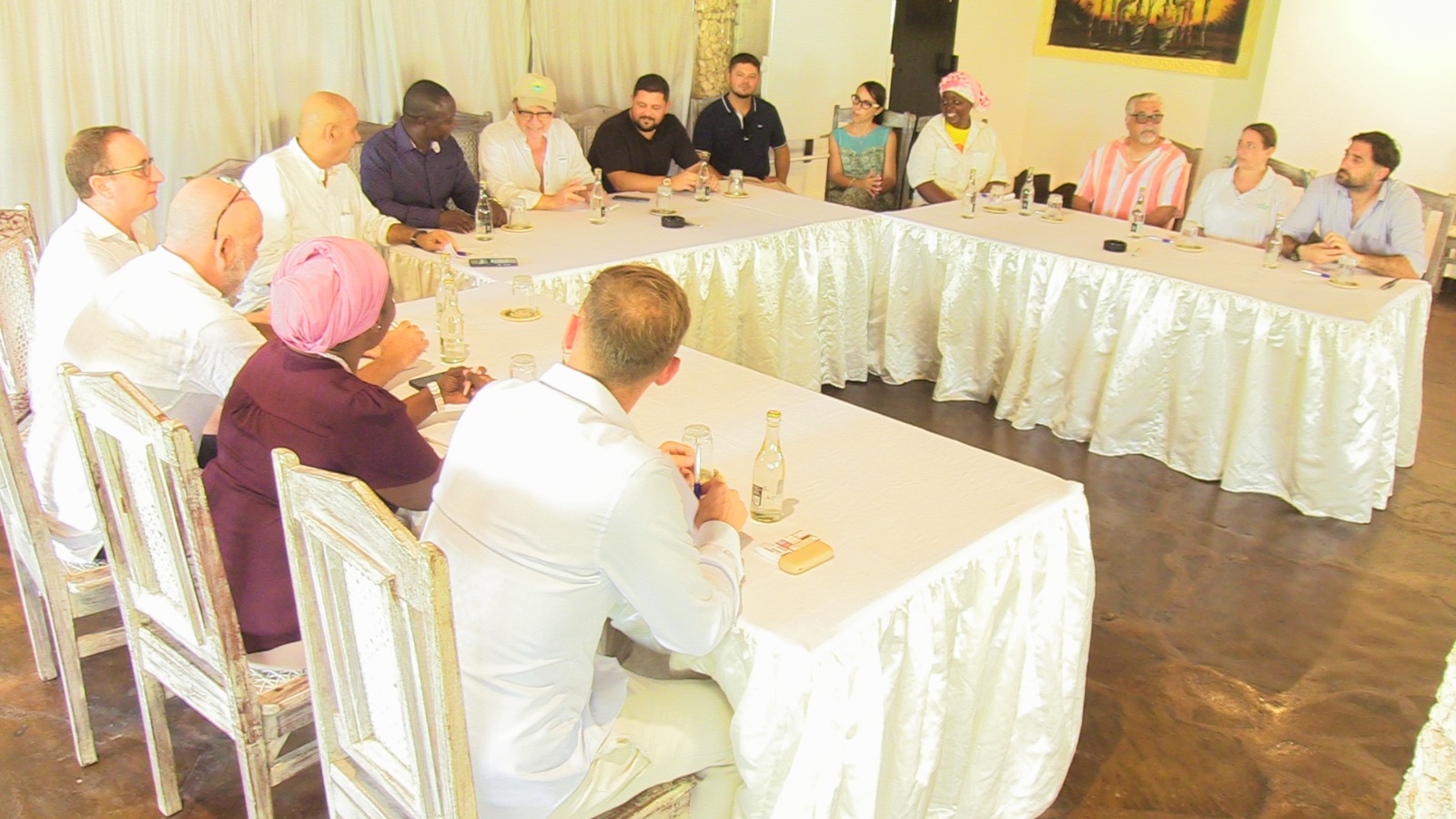 Tourism players Watamu municipality led by the chairman of Jakaranda resort Pasquale Tirito and the General Manager of Seven Island resort Ravi Rohra from during a water crisis meeting at Jakaranda resort in Watamu area, Kilifi County on Tuesday, November 4, 2025. Photo by Ben Okweingoti
Tourism players Watamu municipality led by the chairman of Jakaranda resort Pasquale Tirito and the General Manager of Seven Island resort Ravi Rohra from during a water crisis meeting at Jakaranda resort in Watamu area, Kilifi County on Tuesday, November 4, 2025. Photo by Ben Okweingoti
By Ben Okweingoti
Kilifi County’s tourism sector faces imminent collapse as over 30 hotels cry foul over dry taps and colossal bills
Tourism operators in Watamu, Kilifi County, have issued a stern warning that they may be forced to shut down operations due to persistent water shortages and deteriorating service delivery by the Malindi Water and Sewerage Company (MAWASCO).
The looming crisis threatens the livelihoods of thousands and puts one of Kenya’s top coastal destinations on the brink of a tourism disaster.
According to representatives from more than 30 hotels, including high-profile establishments like Temple Point, Hemingways, Turtle Bay, Jacaranda Beach Resort, and Crystal Bay, water has not been supplied to their facilities for more than two months—despite them paying millions of shillings in monthly bills to MAWASCO.
“We have paid our bills faithfully, but MAWASCO has not supplied us with water for over 60 days,” lamented Pasquale Tirito, Chairman of the Jacaranda Group of Hotels. “This is unacceptable in a sector where water and power are essential. We are now being told that MAWASCO can’t pay Kenya Power, which is why pumps are down. Meanwhile, we’re being forced to buy water privately at additional costs. Who will refund us?”
The threat of closure has sent shockwaves across the hospitality industry and the wider community. Hotel operators say over 10,000 direct jobs and the welfare of more than 50,000 residents are at stake, with some travel agents reportedly considering directing clients to alternate destinations with reliable water supply.
Local businesses and residents, too, have decried the dire situation. “It is heartbreaking for a tourist to fly in from Europe only to be forced to bathe with a bucket because there’s no running water,” said community representative Esther Kaingu. “This isn’t just bad for business; it’s a public health crisis.”
The crisis has also exposed mounting frustration with government utilities including MAWASCO, Kenya Power, the Coast Water Works Development Authority (CWWDA), and the county government.
Hoteliers are urging swift action, calling on authorities to resolve what they describe as internal financial wrangles that are punishing the public and crippling businesses.
With the region's tourism high season approaching, industry stakeholders like Seven Island Resort’s General Manager, Ravi Rohra, are pushing for long-term infrastructure investment such as desalination plants and massive water storage facilities.
“At this rate, we receive water once a month. That’s unsustainable,” said Rohra. “Watamu sits on the Indian Ocean. The government must invest in desalination and create a permanent solution. Otherwise, the entire hotel industry may shut down.”
As the crisis deepens, hoteliers now fear that deteriorating hygiene in nearby settlements could lead to outbreaks of disease—further threatening Watamu’s reputation as a world-class destination.
“About 75 establishments are affected. This could collapse the entire sector if nothing is done immediately,” warned hotel stakeholder Daniele Tirito.
For now, the future of Watamu’s tourism hangs in the balance, and the ball is firmly in the court of county and national authorities to act—and fast—before Kenya loses one of its most celebrated coastal jewels.